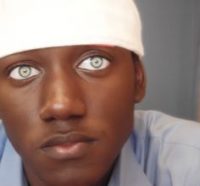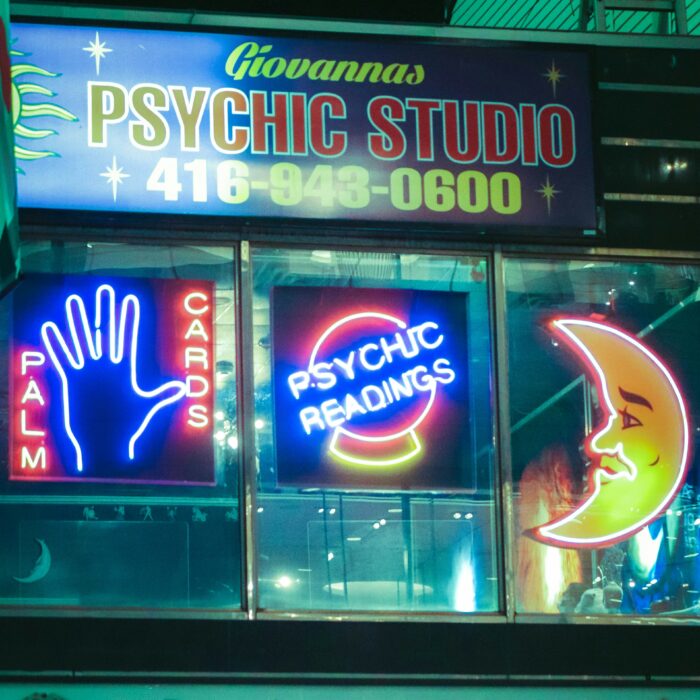You have no items in your cart. Want to get some nice things?
Go shoppingI could argue about having the lightest skin in my family, though I think my mother would disagree. In an old photograph of hers I see a very light-skinned, beautiful woman. It’s not clear if she’s as light-skinned as I am in that photograph, as the photograph was taken long ago in the sixties and is sepia-toned. But I can certainly say that she now isn’t as light-skinned as she once was―what with age and daily exposure to the blazing sun in Lagos.
Growing up, I remember once wanting much lighter skin. Back home we had a fourteen-inch black-and-white TV on which we watched foreign soap operas. One of which was Isaura The Slave Girl: a Brazilian soap opera featuring a cast of black slaves and their white slave masters. I and my four siblings loved Isaura, especially the theme song―Retirantes―sang by Dorival Caymmi and a bevy of sopranos amid drumbeats. Besides the exotic theme song, I adored the character of Isaura herself. Back then I thought she epitomized beauty, her hair let down beneath her shoulders in loose curls, thick and silky; her flawless white skin, a distinct hue from that of the slaves, even though she was supposed to somehow have slave blood coursing through her veins. In no small measure, I should admit that I also admired the handsome slave masters, many of whom arrayed themselves in trench coats and stove pipe hats. I wanted to look like them, dress like them, indeed be them.
My mother would find out about this desire for lighter skin, for whiteness. For supper she used to make custard, which I hated. In order to get me to eat custard, she’d say something like, “As the custard is yellow, so would your skin get fairer. Now eat.” And I’d eat, trusting her, willing my skin to turn as quickly as possible. But of course it never did.
Rather ironically, I wanted darker skin a few years later in primary school. By then I had been exposed to many other children, many of them darker than I. During petty quarrels, it wasn’t unlikely for slurs to be directed at my complexion. A common one was “Yellow Pawpaw,” as they might have thought it strange that my skin resembled the pulp of a skinned pawpaw fruit. I could abide this slur, but not “Afin” which someone once called me: the Yoruba word for “Albino.” Granted, my skin was very light, but not as light as an albino’s. Moreover, my iris didn’t quiver like Tunde’s (Tunde being an albino classmate). In Biology class, I’d learned that albino’s have very fair skin because they lack melanin. Further investigation helped me reckon that I was not one, since I had dark eyes and could see perfectly under the sun.
My desire to be darker in complexion would deepen during my second year in the Nigerian Navy Secondary School. Still many of my classmates had darker skin than I, and this was a great disadvantage. It meant I could hardly escape seniors, or get away with pranks, because I was easily recognisable. A senior I was avoiding could say, for example, the person I’m looking for is that very fair JSS 2 boy, the tall one; and that would be me, for I was taller than most of my peers because of the growth spurt I’d had earlier that year, and I of course arguably had the lightest skin.
Time spent at my secondary school remain cherished years for me, because I believe they were pivotal in shaping me into the person I am today. Yet I sometimes feel those years equally brought out the worst in me. Because we were students of a boys-only school run by the Nigerian Navy, we were constantly drilled at school and weakness was frowned upon. Physical strength endeared us to our peers and brought respect which was something very important to us navy boys. Nonetheless, many of my peers thought me physically weak because of my fair skin, and I very much detested this assumption.
Of all complexion-related spats in which I’d be involved in secondary school, one remains the most vivid: we were in the galley for breakfast. It was a week day, so we’d soon head to the parade ground for assembly which was compulsory. For breakfast we’d each had a loaf of bread, a small stick of butter, and translucent tea. One of my classmates, Bolade, who had sat on the same table as me, clumsily spilled tea on my shirt that morning. Naturally, I was first aghast: at the parade ground I could be punished for wearing a dirty shirt, also thinking about the stain not coming off later. But I didn’t nag Bolade after the spill. Still, I expected an apology which he wouldn’t offer afterwards. When I complained about his misbehavior, what he said to me was, “You want me to tell you sorry. I’ll slap you and you’ll turn red. Are you mad? Are you stupid?” I stared at him, surprised at the irrational splutter of words. What mostly irked me of all he said, though, was, “You’ll turn red.” He’d sneered at my very light skin.
Although bigger than many of my peers, I was not a bully, or didn’t think of myself as one. Perhaps this was why Bolade behaved the way he did that day. Regardless of skin tone, the supposed yardstick for physical strength, I was four solid inches taller than he, even more strapping, yet undeserving of his respect. All this would change a few hours later, after which I evaded parade and rained punches on him in our classroom.
After beating up Bolade, I resolved to be less sensitive about my skin, a little ashamed of what I had to do to prove a point. Sometimes I’d think about the advantages of very light skin, especially the fact that I seldom look ashy during harmattan hazes when everyone’s lips crack. Of course people didn’t stop making snide remarks about my complexion, like Odion – a friend of mine – who once asked me, “Why are you so fair?” She wasn’t exactly asking me a question, only puzzled and maybe frustrated by how I look. Her words pricked me like acupuncture needles, not very painful but prickly all the same. From her, sometime later, I learned that many girls prefer dark-skinned guys: a blanket statement which I’ve found isn’t totally true.
The fact remains that I’ll always be male and very light-skinned. I see now no sensible reason why the conflation should in any way be considered odd or disadvantageous.

About Israel Okwuje
Israel Okwuje writes from Lagos, Nigeria. His works have, or will, appear in the Eclectica, Vox Poetica, Saraba and other literary spaces. In 2015, he was selected for University of Iowa's International Writing Program for Creative Nonfiction.




